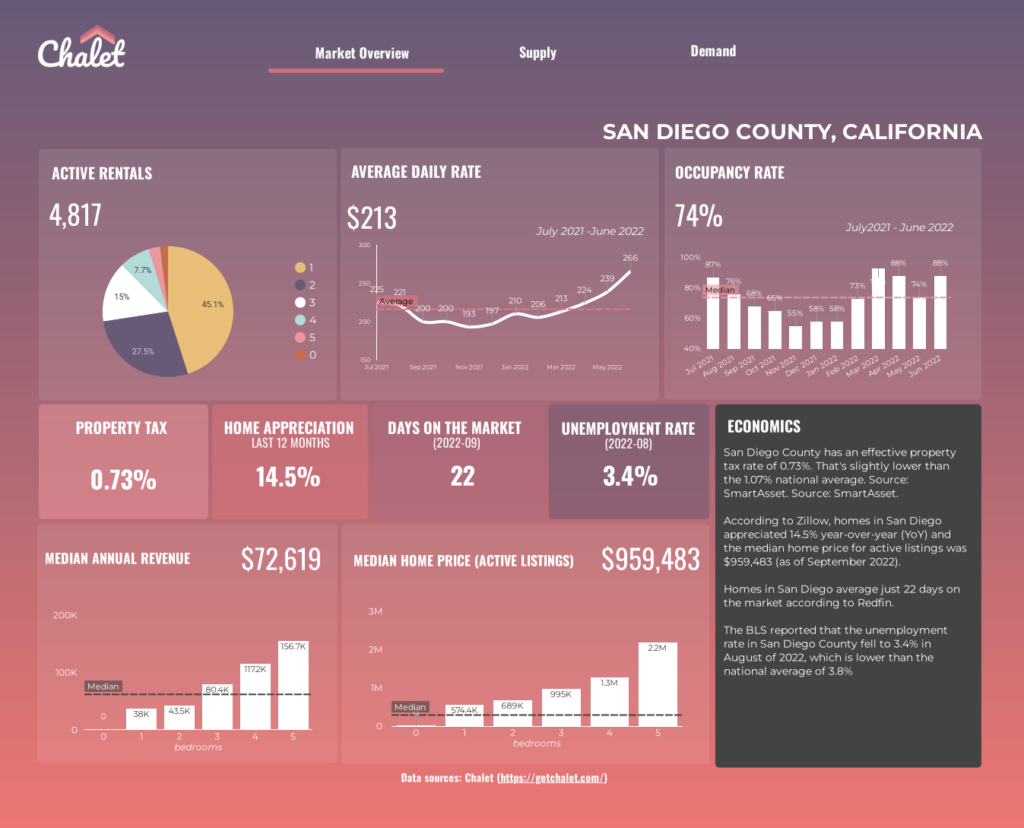New legislation, passed by Councilmember Mark Squilla and signed by Mayor Jim Kenney on June 23, 2021, plans to create a specialized “limited lodging operators” license that both owner-operators and off-site managers would have to obtain at a cost of $150.
- This legislation will be effective April 1, 2022.
- To obtain the specialized license, operators would need to pay for a conventional city business license, meet any related zoning requirements, clear code violations, obtain lead paint certifications, and disclose underlying investors and ownership structures, among additional stipulations.
Please see this article on the Nochmuson P.C.’s website for a very good explanation of the new legislation. Based on the article, limited lodging is limited to a “natural person” who is deemed a primary resident. It further notes that: Restricting limited lodging to only a “natural person” was a decision made by the Philadelphia city council in an effort to circumvent complex corporate ownership structures and hold individuals accountable for any nuisances which may arise as a result of the nature of Airbnb rental.
Airbnb Rentals: FREE Market Reports
Top performing properties, annual revenue, average daily rate, gross yield, occupancy rates, the most popular amenities, and a lot more…
Also, don’t forget to check out Investor Guide to Airbnb Rentals-Philadelphia, PA

STR Defined (this is now obsolete)
In July 2015, an amendment to the Philadelphia Code went into effect permitting Airbnb rentals in any dwelling unit provided that the operator of the short-term (Airbnb) rental complies with certain conditions.
The city of Philadelphia defines a short-term rental as limited lodging. Owners may rent property as limited lodging for fewer than 30 days at a time, given they meet certain requirements and limitations (outlined below).
- Limited lodging is now defined under Section 14-604(13)(a) as the accessory use of a dwelling unit for temporary rental for occupancy for dwelling, sleeping or lodging.
- Primary website for Philadelphia STR Regulations
Standards
A dwelling unit may be used for limited lodging subject to compliance with all of the following minimum requirements:
- The dwelling unit shall remain as a household living unit with housekeeping facilities in common, but not to allow for occupancy by more than three persons (including the owner and lodgers) who are unrelated by blood, marriage, adoption, or foster-child status, or are not Life Partners.
- Limited lodging must be accessory and secondary to the use of a dwelling unit for residential household living purposes.
- Limited lodging may not result in changes to the residential character of the residential building in which it is located. No separate building entrance that is visible from the street may be provided for the sole use of the limited lodging.
- The limited lodging may not adversely affect the residential character of the neighborhood. Limited lodging may not, for example, generate noise, vibration, glare, odors, or other effects that unreasonably interfere with any person’s enjoyment of his or her residence.
- Accessory signs are prohibited.
- Guests of lodgers shall be allowed only between the hours of 8:00 a.m. and 12:00 a.m.
- Smoke alarms and carbon monoxide alarms shall be installed throughout the dwelling unit per the Philadelphia Fire Code.
- Lodgers shall be notified of the trash and recycle collection days for the property and any applicable rules and regulations pertaining to leaving or storing trash on the exterior of the property. Proper containers shall be provided for the lodgers.
- Lodgers shall be notified that excessive noise is prohibited per Chapter 10-400 553 of The Philadelphia Code and such violators shall be subject to fines and penalties.
- The primary resident conducting the limited lodging shall maintain records for a minimum of one (1) year demonstrating primary residency (either entitlement to a Homestead Exemption or, for a renter, residence for more than half the year); the dates of limited lodging and the number of lodgers. Such records shall be made available upon request of any officer of the City responsible for enforcement of any provision of The Philadelphia Code pertaining to the use and occupancy of the dwelling for limited lodging purposes.
- The owner or his/her designee shall provide contact information to the limited lodgers for the purpose of responding to complaints regarding the condition, operation or conduct of the occupants of the dwelling and have the responsibility to take action to resolve such complaints.
- All limited lodging is subject to the Fair Practices Ordinance, Chapter 9-1100.
Licensing Requirements & Fees
The Philadelphia Code requires Airbnb rentals to comply with certain conditions, including obtaining a permit if the listing is rented for more than 90 days a year.
An applicant for a new license or a renewal of a license need to complete an application provided by the Department of Licenses and Inspections that contains the following:
- The name and address of the owner or owners of the property
- The address of the property that is being applied for and the type of dwelling
- The name, address, and phone number of the Managing agent for the property
- The address for a Managing agent can not be a P.O. Box
- The owner’s commercial activity license number, if the owner is required to have such license.
- If any of the information set forth in a license application or license renewal application changes during the term of a license, the owner shall provide updated information in writing to the Department within ten business days of such change.
The annual license fee for a rental license issued under Section 9-3902 shall be fifty-five dollars ($55) for each dwelling or rooming unit with a maximum annual fee of twenty-two thousand dollars ($22,000) per dwelling.
Licenses are not transferable. If the ownership of property changes during a license term, the new owner must obtain a new license within ten business days after such transfer of ownership.
LLC Ownership Allowed
- If an owner of the property is not a natural person or a publicly traded company, the application shall identify, in addition to the owner of the property, the name and preferred mailing address of each natural person who has an equity interest in such owner or owners of the property that exceeds one or more of the following, regardless of whether the natural person has a direct equity interest or such natural person’s equity interest is held through one or more tiers of a corporate structure, such as parent-subsidiary structure:
- (a) forty-nine percent (49%) of the value of the property or (b) forty-nine percent (49%) of the value of the owner of the property. If no natural person has such an interest, the application shall identify the name and preferred mailing address of the two natural persons who have the largest equity interest in the property.
Owning multiple short term rental properties (including within the same property)
Any owner of more than one short-term (Airbnb) rental property shall be required to complete a separate application for registration of each short term rental property, as outlined by the Department
Taxes
- Hosting platforms may have existing agreements with the county to collect and pay taxes/fees directly to the county.
- Ex: Airbnb occupancy tax collection and remittance in Philadelphia, PA
- The City of Philadelphia Hotel Tax of 8.5% on the amount received by the host/operator must be paid monthly.
- For more information on Tax services in Philadelphia, visit the Department of Revenue.
- Pennsylvania State Taxes are also collected (these taxes may also be collected in agreement with a hosting platform):
- Pennsylvania Hotel Occupancy Tax: 6% of the listing price including any cleaning fee and guest fee for reservations 29 nights and shorter that are in the State of Pennsylvania. For detailed information, visit the Pennsylvania Department of Revenue website.
- Local Sales Tax Collected by the State: 1% of the listing price including any cleaning fee and guest fee for reservations 29 nights and shorter. The State administers 2 Local Sales Taxes: Allegheny County and Philadelphia County. For detailed information, visit the Pennsylvania Department of Revenue website.
Occupancy Limits
Bill No. 210081 (approved June 23, 2021), effective April 1, 2022 outlines that limited lodging owners not to allow for occupancy by more than three persons (including the owner and lodgers) who are unrelated by blood, marriage, adoption, or foster-child status, or are not Life Partners.
Responsible Agent
- The city of Philadelphia requires a responsible agent (referred to as a Managing Agent) for any property that is required to obtain a rental license, Vacant Lot License, Vacant Structure License, or Vacant Waterfront Structure License.
- The Managing Agent must be a natural person over the age of eighteen years who resides within the City or customarily or regularly attends a business office maintained within the City, who has agreed to carry out the responsibilities set forth.
- An owner (or in the case of a corporate owner, a principal of the corporation) who meets the qualifications above MAY be designated as the Managing Agent.
- Duties of the Managing Agent include:
- Receive and accept, on behalf of the owner, any notices, orders, or summonses by the Department and any service of process for all matters related to the relevant property.
- Provide to the tenant the following contact information (phone number and Philadelphia address not P.O. Box) for the Managing Agent.
- Providing information on who is responsible for routine maintenance of the property and their contact information.
Zoning
- Browse addresses in Philadelphia, PA using this county zoning atlas.
Pennsylvania State Regulations
- All short-term rental regulations are subject to local jurisdictions where the rental properties are located.
STR Management Considerations
- Whenever the City issues a certificate to an owner indicating the zoning classification and the legality of the existing use of a property to be sold, such certificate shall include a summary of the license and owner accountability responsibility requirements of this Chapter and the property maintenance requirements. The summary shall contain at minimum:
- an explanation of the property license requirements, including the following statement: “No person shall collect rent with respect to any property without first obtaining a license pursuant to Chapter 9-3900 of The Philadelphia Code.”
- an explanation of how an owner can obtain a copy of the Philadelphia Property Maintenance Code
- the following statement: “Failure of the buyer to obtain a property license, if required by Chapter 9-3900 of The Philadelphia Code, within ten (10) days after the transfer of ownership shall constitute a violation of The Philadelphia Code and may result in fines and penalties.”
Data Methodology
For this guide, we analyzed everything from public data sources, assessor records, recently sold homes, data from the Bureau of Labor and Statistics, Airbnb data, and more. Chalet ran this data through machine learning models to derive the forecast models with the most accurate predictions.
Glossary
– ADR: Average Daily Rate
– Gross Yield = Median Revenue/Median Home Price
Thank you for reading. If you are interested in investing in Maricopa County, schedule a free consultation with one of our experts.


